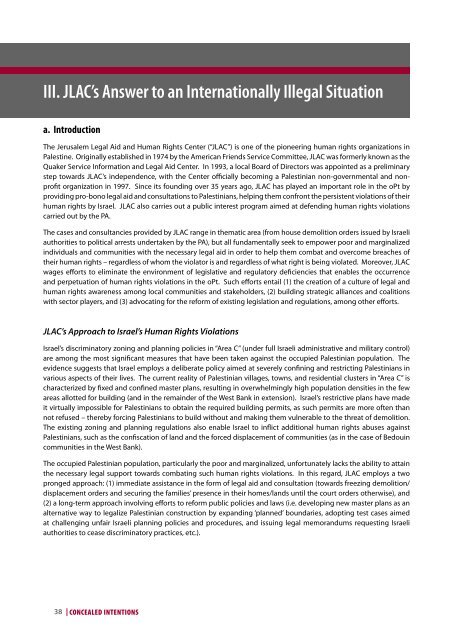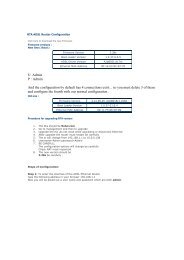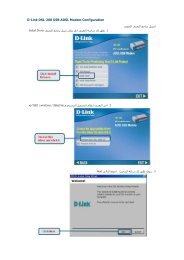Concealed Intentions- JLAC-.pdf
Concealed Intentions- JLAC-.pdf
Concealed Intentions- JLAC-.pdf
You also want an ePaper? Increase the reach of your titles
YUMPU automatically turns print PDFs into web optimized ePapers that Google loves.
III. <strong>JLAC</strong>’s Answer to an Internationally Illegal Situation<br />
a. Introduction<br />
The Jerusalem Legal Aid and Human Rights Center (“<strong>JLAC</strong>”) is one of the pioneering human rights organizations in<br />
Palestine. Originally established in 1974 by the American Friends Service Committee, <strong>JLAC</strong> was formerly known as the<br />
Quaker Service Information and Legal Aid Center. In 1993, a local Board of Directors was appointed as a preliminary<br />
step towards <strong>JLAC</strong>’s independence, with the Center officially becoming a Palestinian non-governmental and nonprofit<br />
organization in 1997. Since its founding over 35 years ago, <strong>JLAC</strong> has played an important role in the oPt by<br />
providing pro-bono legal aid and consultations to Palestinians, helping them confront the persistent violations of their<br />
human rights by Israel. <strong>JLAC</strong> also carries out a public interest program aimed at defending human rights violations<br />
carried out by the PA.<br />
The cases and consultancies provided by <strong>JLAC</strong> range in thematic area (from house demolition orders issued by Israeli<br />
authorities to political arrests undertaken by the PA), but all fundamentally seek to empower poor and marginalized<br />
individuals and communities with the necessary legal aid in order to help them combat and overcome breaches of<br />
their human rights – regardless of whom the violator is and regardless of what right is being violated. Moreover, <strong>JLAC</strong><br />
wages efforts to eliminate the environment of legislative and regulatory deficiencies that enables the occurrence<br />
and perpetuation of human rights violations in the oPt. Such efforts entail (1) the creation of a culture of legal and<br />
human rights awareness among local communities and stakeholders, (2) building strategic alliances and coalitions<br />
with sector players, and (3) advocating for the reform of existing legislation and regulations, among other efforts.<br />
<strong>JLAC</strong>’s Approach to Israel’s Human Rights Violations<br />
Israel’s discriminatory zoning and planning policies in “Area C” (under full Israeli administrative and military control)<br />
are among the most significant measures that have been taken against the occupied Palestinian population. The<br />
evidence suggests that Israel employs a deliberate policy aimed at severely confining and restricting Palestinians in<br />
various aspects of their lives. The current reality of Palestinian villages, towns, and residential clusters in “Area C” is<br />
characterized by fixed and confined master plans, resulting in overwhelmingly high population densities in the few<br />
areas allotted for building (and in the remainder of the West Bank in extension). Israel’s restrictive plans have made<br />
it virtually impossible for Palestinians to obtain the required building permits, as such permits are more often than<br />
not refused – thereby forcing Palestinians to build without and making them vulnerable to the threat of demolition.<br />
The existing zoning and planning regulations also enable Israel to inflict additional human rights abuses against<br />
Palestinians, such as the confiscation of land and the forced displacement of communities (as in the case of Bedouin<br />
communities in the West Bank).<br />
The occupied Palestinian population, particularly the poor and marginalized, unfortunately lacks the ability to attain<br />
the necessary legal support towards combating such human rights violations. In this regard, <strong>JLAC</strong> employs a two<br />
pronged approach: (1) immediate assistance in the form of legal aid and consultation (towards freezing demolition/<br />
displacement orders and securing the families’ presence in their homes/lands until the court orders otherwise), and<br />
(2) a long-term approach involving efforts to reform public policies and laws (i.e. developing new master plans as an<br />
alternative way to legalize Palestinian construction by expanding ‘planned’ boundaries, adopting test cases aimed<br />
at challenging unfair Israeli planning policies and procedures, and issuing legal memorandums requesting Israeli<br />
authorities to cease discriminatory practices, etc.).<br />
38





